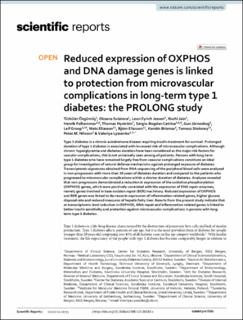| dc.contributor.author | Özgümüs, Türküler | |
| dc.contributor.author | Sulaieva, Oksana | |
| dc.contributor.author | Jessen, Leon E. | |
| dc.contributor.author | Jain, Ruchi | |
| dc.contributor.author | Falhammar, Henrik | |
| dc.contributor.author | Nyström, Thomas | |
| dc.contributor.author | Catrina, Sergiu-Bogdan | |
| dc.contributor.author | Jörneskog, Gun | |
| dc.contributor.author | Groop, Leif | |
| dc.contributor.author | Eliasson, Mats | |
| dc.contributor.author | Eliasson, Björn | |
| dc.contributor.author | Brismar, Kerstin | |
| dc.contributor.author | Stokowy, Tomasz | |
| dc.contributor.author | Nilsson, Peter M. | |
| dc.contributor.author | Lyssenko, Valeriya | |
| dc.date.accessioned | 2022-04-19T12:51:23Z | |
| dc.date.available | 2022-04-19T12:51:23Z | |
| dc.date.created | 2022-02-04T09:40:13Z | |
| dc.date.issued | 2021 | |
| dc.identifier.issn | 2045-2322 | |
| dc.identifier.uri | https://hdl.handle.net/11250/2991340 | |
| dc.description.abstract | Type 1 diabetes is a chronic autoimmune disease requiring insulin treatment for survival. Prolonged duration of type 1 diabetes is associated with increased risk of microvascular complications. Although chronic hyperglycemia and diabetes duration have been considered as the major risk factors for vascular complications, this is not universally seen among all patients. Persons with long-term type 1 diabetes who have remained largely free from vascular complications constitute an ideal group for investigation of natural defense mechanisms against prolonged exposure of diabetes. Transcriptomic signatures obtained from RNA sequencing of the peripheral blood cells were analyzed in non-progressors with more than 30 years of diabetes duration and compared to the patients who progressed to microvascular complications within a shorter duration of diabetes. Analyses revealed that non-progressors demonstrated a reduction in expression of the oxidative phosphorylation (OXPHOS) genes, which were positively correlated with the expression of DNA repair enzymes, namely genes involved in base excision repair (BER) machinery. Reduced expression of OXPHOS and BER genes was linked to decrease in expression of inflammation-related genes, higher glucose disposal rate and reduced measures of hepatic fatty liver. Results from the present study indicate that at transcriptomic level reduction in OXPHOS, DNA repair and inflammation-related genes is linked to better insulin sensitivity and protection against microvascular complications in persons with long-term type 1 diabetes. | en_US |
| dc.language.iso | eng | en_US |
| dc.publisher | Nature | en_US |
| dc.rights | Navngivelse 4.0 Internasjonal | * |
| dc.rights.uri | http://creativecommons.org/licenses/by/4.0/deed.no | * |
| dc.title | Reduced expression of OXPHOS and DNA damage genes is linked to protection from microvascular complications in long-term type 1 diabetes: the PROLONG study | en_US |
| dc.type | Journal article | en_US |
| dc.type | Peer reviewed | en_US |
| dc.description.version | publishedVersion | en_US |
| dc.rights.holder | Copyright 2021 The Author(s) | en_US |
| dc.source.articlenumber | 20735 | en_US |
| cristin.ispublished | true | |
| cristin.fulltext | original | |
| cristin.qualitycode | 1 | |
| dc.identifier.doi | 10.1038/s41598-021-00183-z | |
| dc.identifier.cristin | 1997673 | |
| dc.source.journal | Scientific Reports | en_US |
| dc.identifier.citation | Scientific Reports. 2021, 11, 20735. | en_US |
| dc.source.volume | 11 | en_US |
| dc.source.issue | 1 | en_US |

